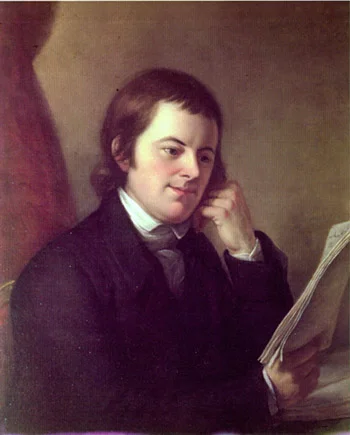Francis Kinloch's Unheeded Advice
Francis Kinloch was a Continental Congressman and soldier in the Continental Army.
He played a small role in the developement in the United States, but wrote James Madison a very interesting letter at the start of hi presidency.
Francis Kinloch
Francis Kinloch spent his formative years in Europe. After receiving an education in London, he spent a few years travelling around the Continent. You know, rich kid stuff.
Then, the American Revolution began.
Kinloch rushed home (as quickly as a long, slow boat ride would take him) because he wanted to prove his loyalty to America. As nice as this sounds, his motive was property. If he didn’t show up and let everyone know he was with the Patriots, there was a good chance he’d be declared a Loyalist and the profitable rice plantation he inherited would be confiscated.
Revolutionary War
Kinloch, now back in South Carolina, decided to join the fight. He served in Savannah, received a bullet wound, healed, and returned to the Continental Army. Kinloch was then captured and briefly imprisoned by the British.
Francis served for William Moultrie until, a year later, he was elected to the Continental Congress.
Though I was unable to find much record of his performance in Congress, it does appear that he was relied on for intelligence regarding British troop movements in South Carolina.
After the war, Kinloch was repeatedly elected to his State’s House of Representatives.
Francis was a federalist who attended the South Carolina Ratifying Convention and voted in favor of the Constitution.
Nephew In Prison
During George Washington’s second term as President, the French Revolution hit full stride. Kinloch’s nephew (Francis Kinloch Huger) went to Europe to fight for freedom. The young man attempted to break the Marquis de Lafayette out of prison but was captured and jailed himself.
Kinloch contacted the President to see if he could give assistance in bailing his nephew out.
Unfortunately, Washington and Secretary of State Pinckney could not figure out a diplomatic way to make this happen. Huger was eventually released and returned to America where he served in the Army under President John Adams.
A Letter To The President
Perhaps the most interesting fact I was able to dig up regarding Kinloch was a letter he wrote to James Madison.
The two men had served together in the Continental Congress in 1780. Almost thirty years later, Madison was elected as the fourth President of the United States.
Kinloch, a Federalist (and member of the opposition party), wrote Madison a very polite letter which he felt was ‘his duty.’ The letter discussed the fears then held by the slowly disappearing Federalist Party. These concerns, ‘whether erroneously or not, very generally persuaded, that our interests have been sacrificd to theories.’
This quote seems to point out that the policies of the previous (Thomas Jefferson) Administration, were based on lofty ideals while the distress of the Federalists was due to a desire to make decisions founded on tried and true methods.
Kinloch’s goal was not to criticize the Democratic-Republicans, but to offer perspective.
Francis compliments Madison on his inaugural speech which called for unity, and the reason he wrote the letter to his old friend was just that: to help him unify the nation.
Unfortunately, we know now that this did not work, as Madison would oversee the War of 1812. This war would cause such animosity between the two parties that by it’s end, the Federalists would no longer exist.
Francis Kinloch published two papers in his lifetime, 'Eulogy on George Washington' and 'Letters from Geneva to France.' It is in old-timey language, so it can be a bit difficult to read, but I really enjoyed the 'Eulogy on George Washington' as it offers perspective on how Washington was viewed in his own time. (*Please note, Washington was given eulogies from across the country. The most well known is by Henry Lee. This is one of many examples*). Pick it up from the library or on Amazon, our affiliate bookseller, from the link below.
As always, don't forget to subscribe to our email list here to receive a new Founder every day.






